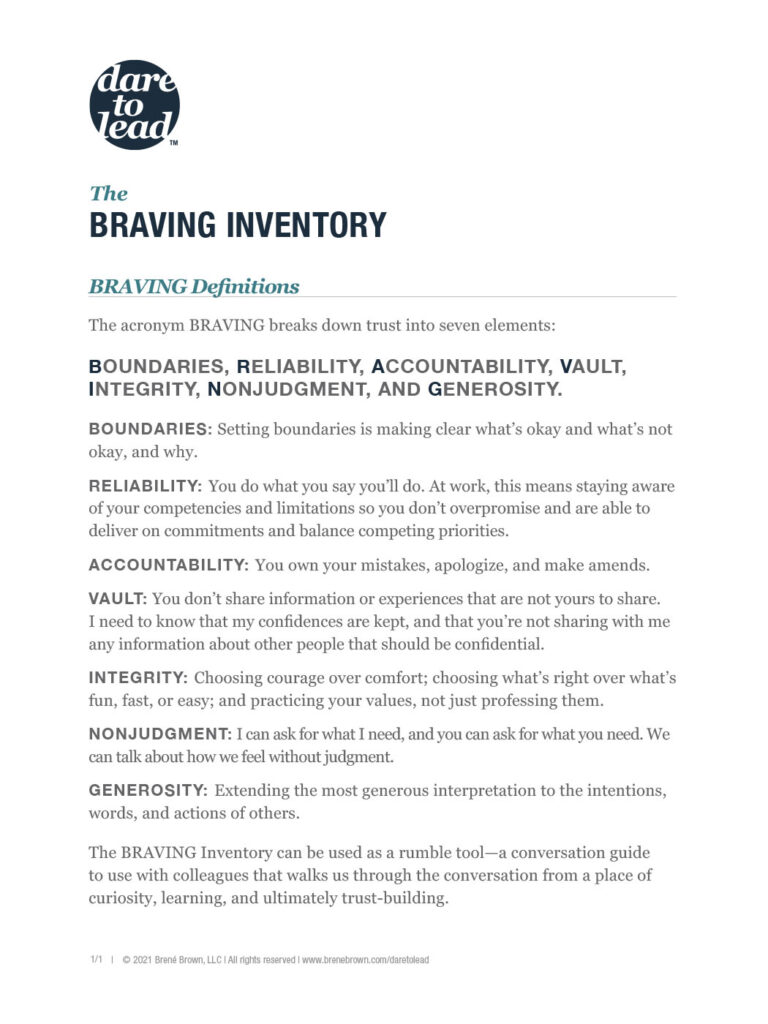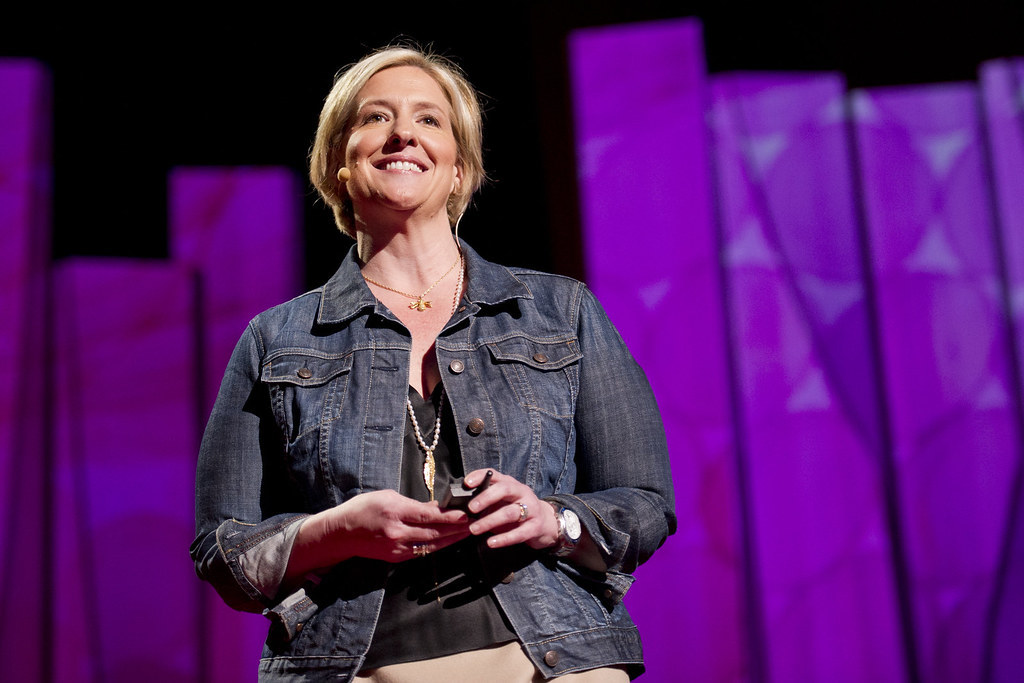Mentorship is a powerful tool for personal and professional development, offering a rich environment for building and refining trust through the BRAVING Inventory framework. BRAVING, an acronym coined by Brené Brown in her book “Dare to Lead,” outlines seven essential components of trust: Boundaries, Reliability, Accountability, Vault, Integrity, Non-judgment, and Generosity. Let’s explore how mentorship helps cultivate each of these crucial elements, and why it is such a great practice for leadership development.
1. Boundaries
Effective mentorship involves setting and respecting boundaries, both personal and professional. Mentors and mentees must clearly define the scope of their relationship, establishing what is and isn’t acceptable. This process encourages open communication and mutual respect, creating a safe space where both parties feel comfortable expressing their needs and limitations. By practising boundary-setting in a mentorship context, individuals learn to establish and maintain healthy boundaries in other areas of their lives.
2. rELIABILITY
Mentorship relies on consistent and dependable interactions. A mentor demonstrates reliability by being available, meeting regularly, and following through on commitments. This consistency helps mentees trust that their mentor will be there when needed, providing guidance and support. Through this relationship, mentees learn the importance of reliability and the impact it has on building trust within any professional or personal relationship.
3. Accountability
Accountability is a cornerstone of a successful mentorship. Both mentors and mentees must take responsibility for their actions, own their mistakes, and work towards making amends. Mentors model accountability by being transparent about their own experiences and encouraging mentees to reflect on their actions and learn from them. This practice fosters a culture of honesty and continuous improvement, essential for building trust.
4. VAULT
Confidentiality is critical in a mentoring relationship. Mentors create a “vault” where mentees can share their thoughts, fears, and aspirations without fear of judgment or disclosure. This safe space allows for vulnerability and openness, essential for deepening trust. By keeping confidences, mentors demonstrate the value of discretion, teaching mentees the importance of respecting others’ privacy and maintaining trust.
5. INTEGRITY
Mentors serve as role models of integrity, consistently aligning their actions with their values. Under the ‘BRAVING’ framework, Integrity is described as “choosing courage over comfort; choosing what’s right over what’s fun, fast, or easy; and practising your values, not just professing them.” Mentors can role model integrity to their mentees by consistently acting with honesty, transparency, and accountability. By making ethical decisions, respecting others, and maintaining confidentiality, mentors demonstrate the importance of integrity. Leading by example and encouraging ethical behaviour helps mentees develop their own sense of integrity, fostering a culture of trust and respect.
6. Non-judgement
A key aspect of mentorship is providing a non-judgmental space where mentees can express themselves freely. Mentors listen actively and empathetically, offering support and guidance without criticism. This approach helps mentees feel valued and understood, promoting self-acceptance and growth. By practising non-judgment, mentors teach the importance of creating inclusive environments where everyone feels safe to contribute and be themselves.
7. Generosity
Generosity in mentorship involves giving time, knowledge, and support without expecting anything in return. Mentors demonstrate generosity by investing in their mentees’ development, sharing their expertise, and celebrating their successes. This selfless approach encourages mentees to adopt a similar attitude, fostering a culture of generosity and trust within their own networks and communities.
The Dare to Lead ‘BRAVING Inventory’ worksheet (found on The Dare to Lead website):

In Summary
Mentorship is a dynamic and reciprocal relationship that nurtures the development of BRAVING skills. Through the intentional practice of setting boundaries, being reliable, holding oneself accountable, maintaining confidentiality, acting with integrity, offering non-judgmental support, and practising generosity, both mentors and mentees can build and reinforce trust. This foundation of trust not only enhances the mentoring relationship but also translates into stronger, more resilient personal and professional connections. By embracing the principles of the BRAVING Inventory through mentorship, we can cultivate environments where trust flourishes, leading to greater collaboration, innovation, and success.
GET GROWING THROUGH MENTORSHIP
Join our monthly newsletter to get updated on mentorship opportunities and actionable insights to learn and grow through relationships.

Follow OneUpOneDown on Facebook, LinkedIn, Twitter and Instagram to stay tuned with the latest news.
